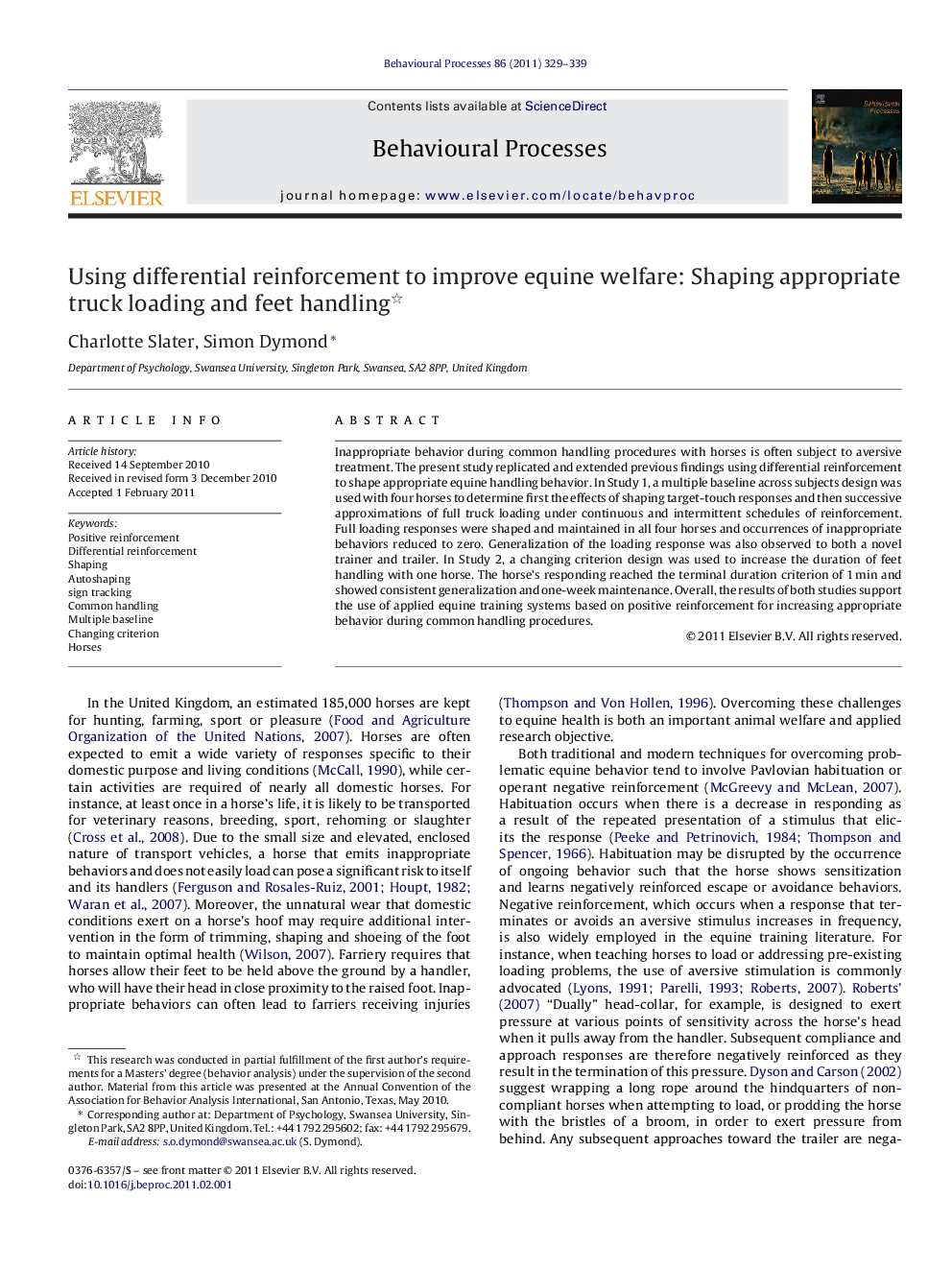| Article ID | Journal | Published Year | Pages | File Type |
|---|---|---|---|---|
| 2427333 | Behavioural Processes | 2011 | 11 Pages |
Inappropriate behavior during common handling procedures with horses is often subject to aversive treatment. The present study replicated and extended previous findings using differential reinforcement to shape appropriate equine handling behavior. In Study 1, a multiple baseline across subjects design was used with four horses to determine first the effects of shaping target-touch responses and then successive approximations of full truck loading under continuous and intermittent schedules of reinforcement. Full loading responses were shaped and maintained in all four horses and occurrences of inappropriate behaviors reduced to zero. Generalization of the loading response was also observed to both a novel trainer and trailer. In Study 2, a changing criterion design was used to increase the duration of feet handling with one horse. The horse's responding reached the terminal duration criterion of 1 min and showed consistent generalization and one-week maintenance. Overall, the results of both studies support the use of applied equine training systems based on positive reinforcement for increasing appropriate behavior during common handling procedures.
Research highlights► Inappropriate equine behavior during common handling procedures is often subject to aversive treatment. ► Using differential reinforcement, truck loading was successfully shaped in three horses using a multiple baseline design. ► Feet handling was increased in one horse using a changing criterion design. ► Findings show that differential positive reinforcement is effective in overcoming inappropriate equine behavior.
